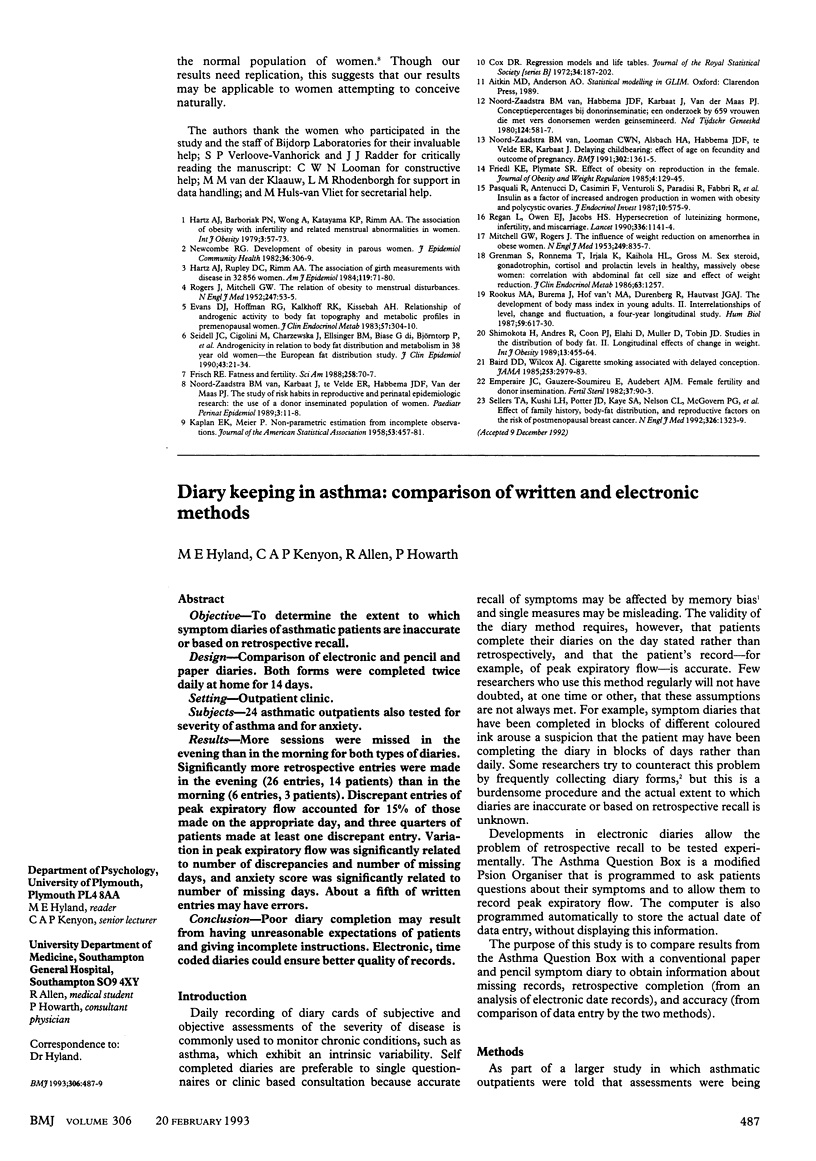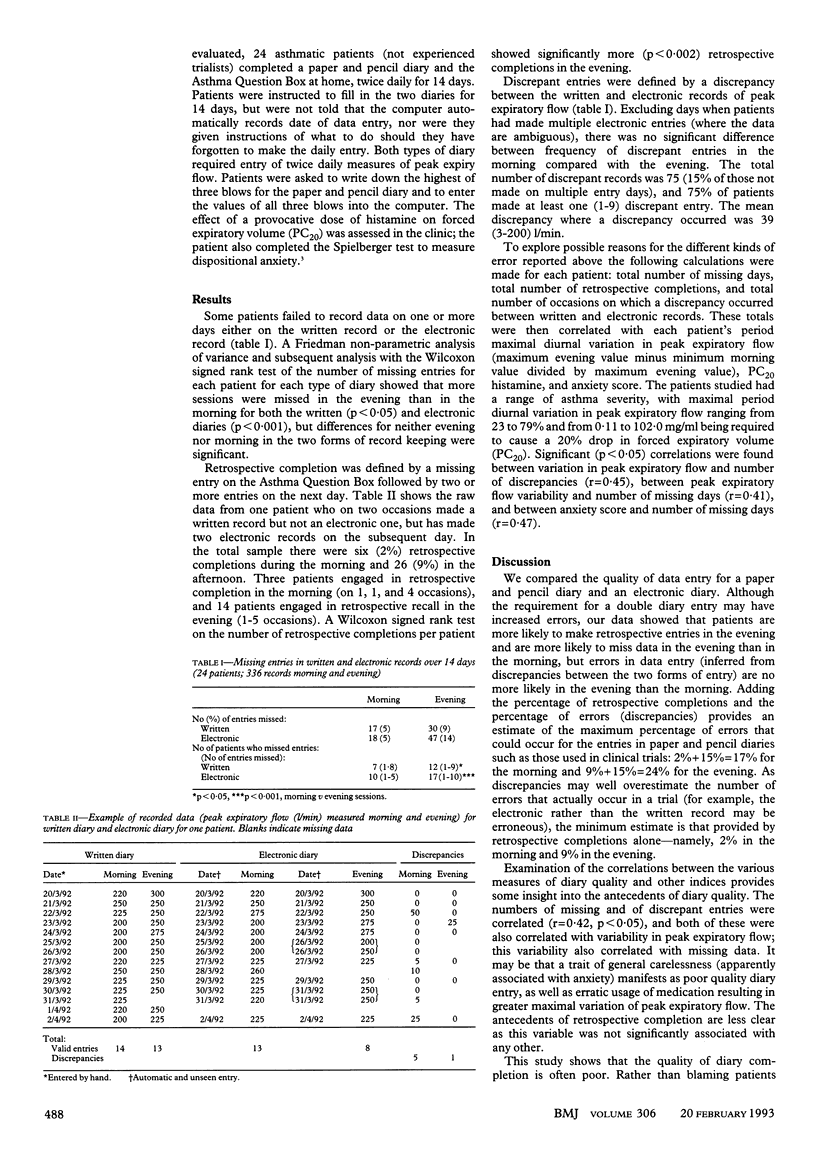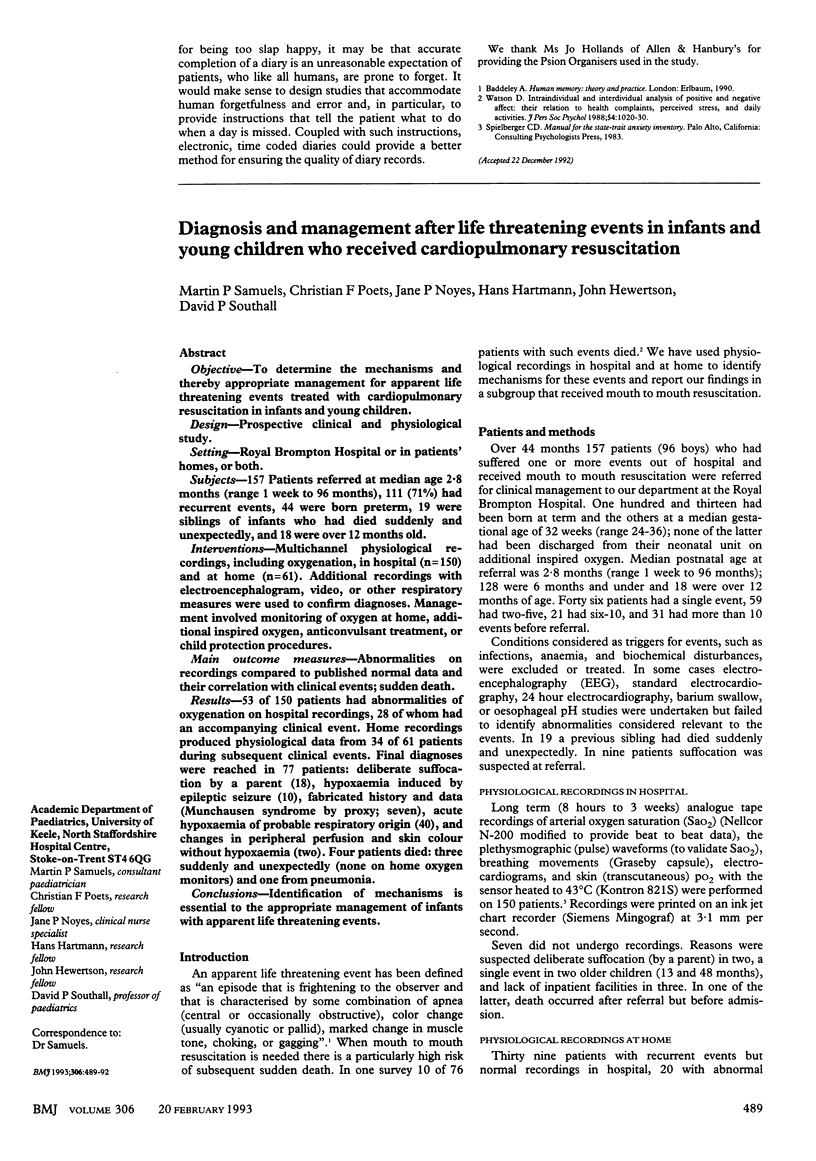Abstract
OBJECTIVE--To determine the extent to which symptom diaries of asthmatic patients are inaccurate or based on retrospective recall. DESIGN--Comparison of electronic and pencil and paper diaries. Both forms were completed twice daily at home for 14 days. SETTING--Outpatient clinic. SUBJECTS--24 asthmatic outpatients also tested for severity of asthma and for anxiety. RESULTS--More sessions were missed in the evening than in the morning for both types of diaries. Significantly more retrospective entries were made in the evening (26 entries, 14 patients) than in the morning (6 entries, 3 patients). Discrepant entries of peak expiratory flow accounted for 15% of those made on the appropriate day, and three quarters of patients made at least one discrepant entry. Variation in peak expiratory flow was significantly related to number of discrepancies and number of missing days, and anxiety score was significantly related to number of missing days. About a fifth of written entries may have errors. CONCLUSION--Poor diary completion may result from having unreasonable expectations of patients and giving incomplete instructions. Electronic, time coded diaries could ensure better quality of records.
Full text
PDF


Selected References
These references are in PubMed. This may not be the complete list of references from this article.
- Watson D. Intraindividual and interindividual analyses of positive and negative affect: their relation to health complaints, perceived stress, and daily activities. J Pers Soc Psychol. 1988 Jun;54(6):1020–1030. doi: 10.1037//0022-3514.54.6.1020. [DOI] [PubMed] [Google Scholar]


